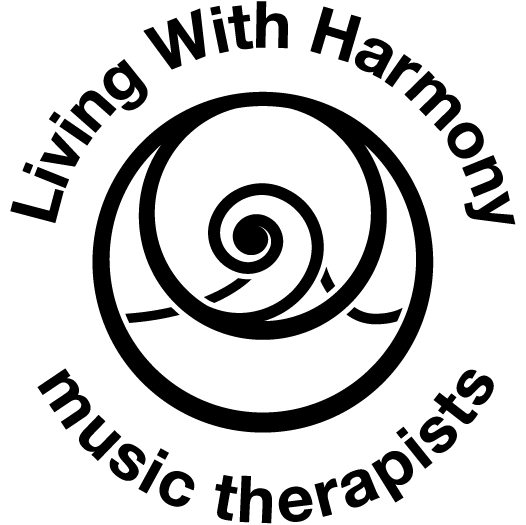Music Therapy uses the powerful and universal language of music to help improve physical and mental health. It has been practiced throughout the world for centuries and still holds up to the scrutiny of modern medicine today.
At Living With Harmony, we provide inclusive group sessions and can include members of staff,carers and family members. Sessions last approximately an hour and the numbers are normally only limited by the space.
You can learn more about the techniques we use in these sessions here.
Groups
Communicating and relating with words can be a struggle, whereas the language of music connects and motivates. When this happens in an existing group setting the benefits of the group music therapy session can remain long after the therapists leave.
Elderly
Living with Harmony offer specific music therapy approaches to improve the quality of life for elderly people and there is particular evidence for the use of music therapy in reducing agitation, anxiety and apathy for people with dementia.
CHILDREN
As any parent knows, music can have a huge effect on children and music therapy embraces this to improve their emotional and social development, and so their quality of life.
Teens
The growth and change experienced in teenage years can be challenging but can also offer real opportunities for development and learning. As teens can naturally gravitate towards music, music therapy can be very effective at improving self-understanding
FAMILIES
This can give families a greater range of communication skills that help nurture children's development, promote strong attachments and increases self-confidence within all family members. It deliberately reaches out to families who may be socially isolated - such as those with a child with special educational needs or behavioural difficulties - and engages families positively. Taken as a whole, these outcomes hugely increase the likelihood of successful lives and attainment for these families and children.
What is Harp Therapy?
Harp Therapy is a training in therapeutic musicianship to use the receptive aspects of music with patients. This includes the rhythms and tones that are meaningful to the person and also the music that might be familiar to them. Harp Therapy is typically offered in hospitals, hospices, nursing homes or homes at the person’s bedside.
“We are the music makers and we are the dreamers of dreams”
“Music is the strongest form of magic”

